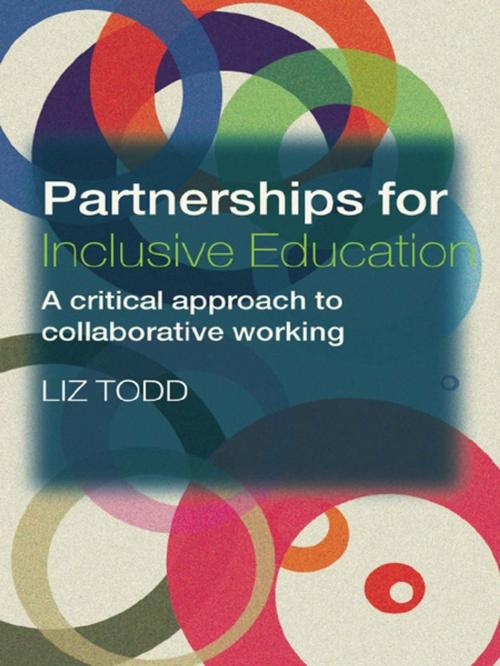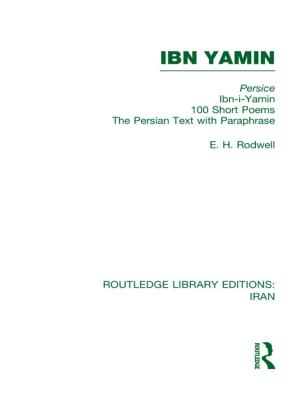Partnerships for Inclusive Education
A Critical Approach to Collaborative Working
Nonfiction, Reference & Language, Education & Teaching, Educational Theory, Educational Psychology, Special Education| Author: | Liz Todd | ISBN: | 9781134427314 |
| Publisher: | Taylor and Francis | Publication: | January 24, 2007 |
| Imprint: | Routledge | Language: | English |
| Author: | Liz Todd |
| ISBN: | 9781134427314 |
| Publisher: | Taylor and Francis |
| Publication: | January 24, 2007 |
| Imprint: | Routledge |
| Language: | English |
Shortlisted for the NASEN/TES 2007 Book Award
Increased partnership between professionals, particularly through the integration of services, indicates a major opportunity for child and parent participation, but one that seems in danger of being side-stepped. Drawing on substantial research evidence, this book looks at reasons for this situation; what is happening now, what developments and initiatives have been tried and what can be done to develop a culture of participation?
Some of the main threats to participation are discussed in this book including:
- Has ‘partnership’ ever been?
- Who is excluded from 'partnership'?
- Which discourses have made participation illusive and what are the implications – theoretical and practical - for how we move forward?
Partnerships for Inclusive Education includes a helpful framework map which guides critical thinking towards the development of a culture of collaboration and presents original and stimulating ideas to open up the complex processes that can frustrate participative practice. Combining socio-cultural ideas with post-structural thinking gives this book a strong yet accessible theoretical basis, making it a valuable resource to both an academic and a professional educational audience.
Shortlisted for the NASEN/TES 2007 Book Award
Increased partnership between professionals, particularly through the integration of services, indicates a major opportunity for child and parent participation, but one that seems in danger of being side-stepped. Drawing on substantial research evidence, this book looks at reasons for this situation; what is happening now, what developments and initiatives have been tried and what can be done to develop a culture of participation?
Some of the main threats to participation are discussed in this book including:
- Has ‘partnership’ ever been?
- Who is excluded from 'partnership'?
- Which discourses have made participation illusive and what are the implications – theoretical and practical - for how we move forward?
Partnerships for Inclusive Education includes a helpful framework map which guides critical thinking towards the development of a culture of collaboration and presents original and stimulating ideas to open up the complex processes that can frustrate participative practice. Combining socio-cultural ideas with post-structural thinking gives this book a strong yet accessible theoretical basis, making it a valuable resource to both an academic and a professional educational audience.















